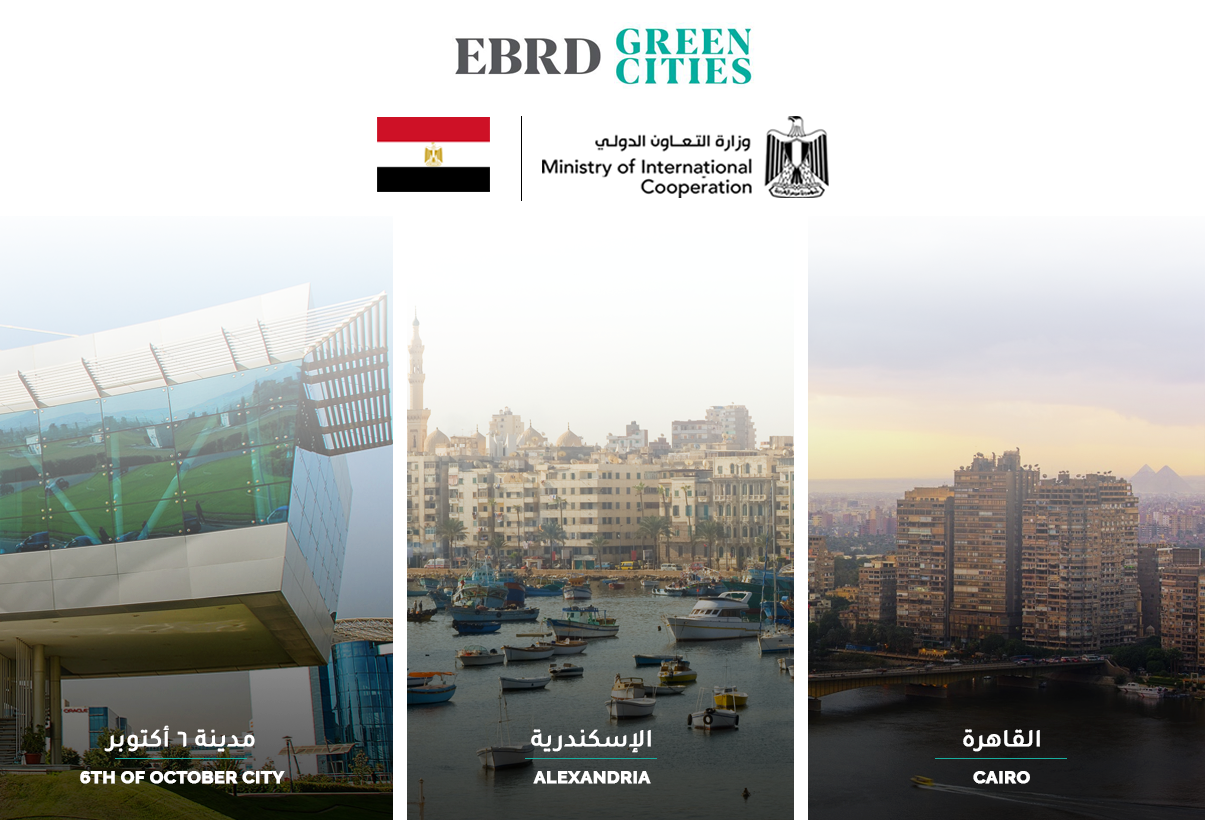
Report highlights 2 Egyptian projects among major clean energy ventures in N.Africa
A report by Energy Capital & Power highlighted two Egyptian projects – Suez Wind Power ...

A promotion film by the European Bank for Reconstruction and Development (EBRD) highlighted three key Egyptian projects scheduled to reduce CO2 emissions by about 93,000 tons annually.
The film, prepared by the EBRD, was broadcast during a panel discussion on the “Green Cities” program, attended by government officials and EBRD governors from dozens of countries, and representatives of international institutions.
The film shed light on the dry port in the 6th of October City, the Greater Cairo metro lines and the Abu Qir Metro in Alexandria. These are projects that reflect the importance of partnership between the government and private sectors to develop sustainable infrastructure and its impact on creating an investment climate.
The projects are implemented within the framework of Egypt-EBRD partnership under the “Green Cities” program, through which the EBRD aims to help cities meet environmental challenges, improve the quality of life, and combat the effects of climate change, through an action plan to be implemented, to shift towards green cities, and to provide green funds for projects to be implemented in various fields; overall it aims to include 100 cities around the world by 2024.
Through the close partnership between Egypt and the EBRD, three Egyptian cities joined the Green Cities Program: Greater Cairo Governorate, Alexandria Governorate, and Sixth of October City, and during the visit of the President of the bank Odile Renaud-Basso to Egypt in April 2021, a memorandum of understanding was signed to include the governorates of Cairo and Alexandria in the program, in addition to the city of 6th of October.
The 1st Dry Port in Egypt
The dry port of 6th of October City is the first of its kind, as part of the Government of Egypt’s plan to expand dry port projects to enhance logistic centers in Egypt. The project is also the first of its kind to be implemented in partnership between the government and private sectors.
The EBRD had provided development financing in the amount of $25 million, for the first dry port in Egypt, which will serve as an extended gateway to seaports in the northern and eastern regions.
The port provides many advantages, the most important of which is reducing waiting time and enhancing work efficiency in seaports, reducing congestion in ports and on roads due to containers used in transporting containers, replacing them with railways, and reducing fuel use by providing 14 million liters of diesel fuel, used to transport containers every year in addition to reducing CO2 emissions by about 40,000 tons.
Earlier, the 6th of October dry port project won the “IJ Global” award as the best and first transportation project within the framework of EBRD’s Green Cities program in the Middle East and North Africa region, which serves the industrial zones in Egypt.
The 2nd Line of the Greater Cairo Metro
Among the pioneering projects to which the EBRD contributes, to enhance the sustainability of infrastructure in Cairo, is the second line of the Greater Cairo Metro, which comes in light of the Government of Egypt’s vision to develop the sustainability of transportation infrastructure, through the expansion of electric-powered means.
The Greater Cairo Metro transports about 200 million passengers annually, with the possibility of increasing the capacity by about 50%, and reduces carbon dioxide emissions that pollute the air by about 31 ,000 tons annually.
Abu Qir Electric Metro in Alexandria
The EBRD is financing the Abu Qir metro in Alexandria at a value of €250 million. The project provides many benefits, as it connects the city of Alexandria to Abu Qir through a 22-kilometer subway line, and contributes to removing traditional transit places that threaten the lives of citizens, as well as reducing carbon dioxide emissions by about 22 thousand tons per year.
The EBRD launched the Green Cities Program in late 2016, to support cities to transition to a green, low-carbon and more resilient future. It achieves this by helping cities identify their most pressing environmental priorities, and addressing them through targeted investment and public policy actions. To date, the program includes 50 cities globally, 80 projects are being implemented, saving 4.57 million tons of CO2 emissions, and mobilizing about €5 billion from the project’s bilateral and multilateral development partners including the Green Climate Fund, the European Union, the European Bank Technical Support Instrument, South Korea and Japan.
A report by Energy Capital & Power highlighted two Egyptian projects – Suez Wind Power ...
The opening concert of the Annual Meeting 2025 in Davos-Klosters will address the pressing issues ...
Juhayna Food Industries proudly announced that its agricultural arm, El Enmaa for Agricultural Development, has ...


اترك تعليقا